

Tao Te Ching
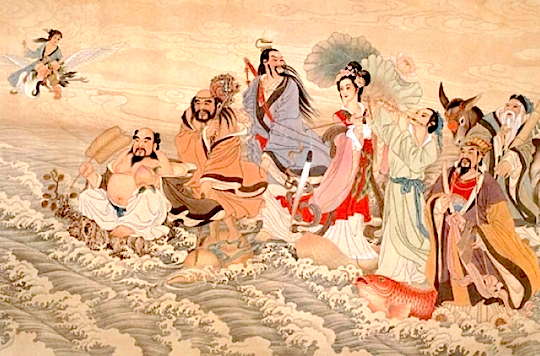
Taoist Lineage
Taoism personifies our theme of the “Wisdom Beyond Words” and to understand it means going beyond words; only using them as stepping stones or launching pads into something deeper and more real. And as becomes clear looking into the lineages and lineage holders described here; all authentic traditions, religions, and philosophies share as least a small stream of teachings and awareness of the sense buried beneath the words, of understanding based on experience rather than faith, belief, tradition or philosophy. Although genuine Taoism champions this theme, unfortunately - like all these traditions through history - it frequently sinks into superstition, materialism, and belief systems. Unlike most of the other traditions though with the sometimes exception of Buddhism, the Taoism core realizations seem to more easily shine through the “golden chains” of religious conceptualization and practice bringing this profound and ancient wisdom into our modern world.
People (96)
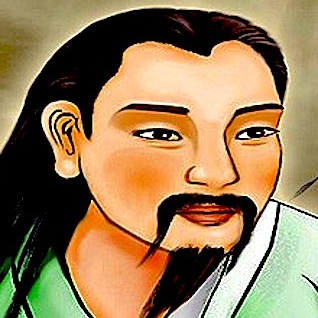
Fu Xi 伏羲
c. 2852–2737 BCE
Emperor/shaman progenitor of civilization symbol
Considered the most important primogenitor of Chinese civilization, Fu Xi reigned after his sister/wife Nü Wa during the transition from matriarchal to patriarchal society when people first learned of the link between sex and children. Credited with inventing the I Ching hexagrams, hunting, fishing, cooking, the calendar, marriage, the original 100 Chinese surnames, and a system for writing characters; Fu Xi was an emperor/shaman who could tame wild animals as well as the wild, primitive humans of the time establishing the union of opposites and cosmic harmony.

Guangchengzi 廣成子 (Guǎngchéngzǐ)
2698 – 2598 BCE
Avatar of the Tao
According to Zhuangzi, Guangchengzi was a teacher of the Yellow Emperor and in some Taoist traditions, considered an avatar of the Tao emanating 3 times: first as Guangchengzi, second as Lao Tzu and the third time as Zhang Daoling (34-156 CE). A master of sword culture and an early incarnation of Lao Tzu, he’s considered an important part of founding Chinese civilization.
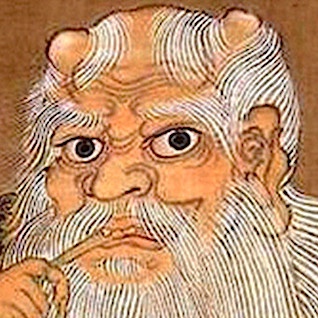
Shennong 神农 (Shen Nung, Divine Farmer, Emperor of the Five Grains)
2737 – 2697 BCE
“Father of Agriculture” and Traditional Chinese medicine
“Father of Agriculture” and irrigation; inventor of the plow, axe, rake, digging wells, preserving seeds, cultivating grain and the farmer’s market; Chinese history also credits Shen Nung with developing science and the use of herbs for medicine, moxibustion, taking pulses, and acupuncture. Said to have discovered tea, he is also quoted in the I Ching and the Huainanzi. Wandering through remote mountains and plains, he identified and then cultivated rice, wheat and millet; tasted and tested hundreds of herbs, developed the first pharmacopoeia and Traditional Chinese medicine.
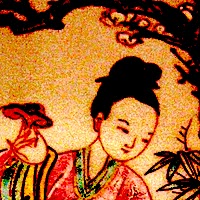
Queen Mother of the West 瑤池金母 (Wang Mu, Niang Niang)
1766 – 1666 BCE
Feminine principle embodiment
Symbol of matriarchal preeminence, feminist role model, Taoist goddess of fertility and life, embodiment of Yin femininity, bringer of longevity, prosperity, and bliss; Wang Mu refused to submissively bow down to male superiority and disdained the typical Chinese attitude of always wanting male children, being disappointed with female births. Mythologized throughout Asia, she became an inspiration for women in China, Viet Nam, and Korea who had trouble passively following in the expected patriarchal role models. Although sited in accounts more than 1000 years before Lao Tzu’s time, she became one of the most popular symbols in Taoist tradition and—in at least one account—inspired and ultimately wrote with him the Tao Te Ching. Her influence and popularity continue today in many parts of the world and she is venerated in the Taoist Shangqing School.

Jiang Ziya 姜子牙
11th century BCE
"Master of Strategy"
Taoist adept and "master of strategy;" Jiang Ziya discovered how addicted to alcohol and women the Shang Dynasty emperor had become. He moved to the Zhou Kingdom where—after years waiting with an empty fishing line—he became military advisor to King Wen and his successor, King Wu. Together they established the Zhou Dynasty, the longest-lasting in all of Chinese history. His book, Six Secret Strategic Teachings became one of the Seven Military Classics of Ancient China, the only one of the Seven written with revolution in mind.

Lao Tzu 老子 (Lǎozǐ)
604 BCE -
The poems translated here say more about Lao Tzu than could any commentary on his life. A huge influence on all of Chinese culture, much of Chinese literature and almost all of Chinese art, Lao Tzu’s teachings also extend to every aspect of life including politics to such an extent that he was claimed as an ancestor by the emperors of the Tang dynasty. Some call Zen “Taoism in Buddhist clothing” and these teachings continue to inspire people in all of the non-thought lineages. As Ursula Le Guin comments, “Of all the deep springs, this is the purest water.”
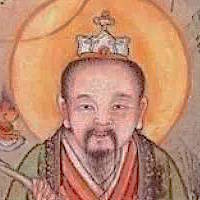
Yin Xi 關尹子
536 – 596 BCE
Lao Tzu’s first disciple and Taoist patriarch
Yin Xi, Yin Hsi, Guan Yin Zi 關尹子 (fl. 6th century BCE)
Astronomer from a royal observatory said to have seen purple clouds drifting in from the east and taken them as a symbol that a great sage would soon be coming through that area, Yin Xi went to the one place everyone traveling to that area would have to pass through, the Hanku Pass, a strategic and narrow ten-mile canyon between the Qin and Zhou states. Recognizing Lao Tzu, he asked to become his disciple, became his first student, and requested the teachings that became the Tao Te Ching. Known as the “Master at the Beginning of the Scripture,” Lao Tzu’s first disciple, Taoist patriarch and founder of the Yin Xi Lineage; he became the prototype “Taoist” and inspiration for the development of religious Taoism.
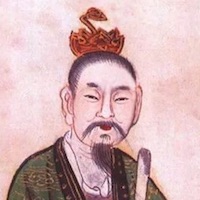
Wenzi 文子 (Wénzǐ)
(fl. 5th century BCE)
"Authentic Presence of Pervading Mystery.”
Close disciple of Lao Tzu, nobleman from the Jin state, astronomer, teacher of the Yueh state prime minister, inspiration for the famous commentary of the same name written by his disciples; Wenzi’s life is clouded in myth, magic, and superstition. The text itself - regarded the 4th main Taoist scripture after the Tao Te Ching itself, the Zhuang Zi (Chuang Tzu), and Lie Zi (Lieh Tzu) - was considered a forgery written much later until an archeological team discovered a copy written on bamboo strips in a a tomb buried in 55 BCE. In 742 CE, Tang emperor Xuanzong gave this book the name, "Authentic Presence of Pervading Mystery.”
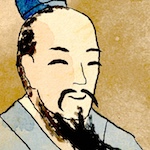
Chuang Tzu 莊周 (Zhuangzi)
369 – 286 BCE
In a very real way, all of Chuang Tzu’s writings are a commentary on the Tao Te Ching. And by far, the best. Many consider him to be like Plato was to Socrates, like Paul was to Jesus, like Mencius was to Confucius, like Ashoka was to the Buddha… responsible for spreading the message of their teacher to the bigger world. Ridiculing rigid Confucian principles, he champions the sense instead of the words, the non-thought lineage, and true wisdom in daily life. His teachings emphasizing the interdependence of all things both inspire and foreshadow our modern ecological perspective.
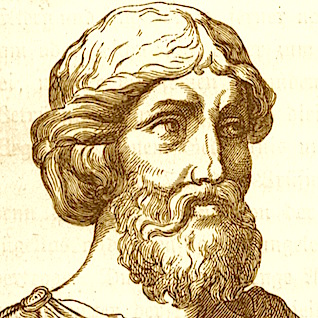
Epicurus ɛpɪˈkjɔːrəs
341 – 270 BCE
Western Buddha
Author of 300 lost books, a huge influence on western philosophy through Schopenhauer, Nietzsche, Karl Marx, David Hume, and inspiration for Thomas Jefferson’s “all men are created equal and endowed with certain unalienable rights, such as life, liberty, and the pursuit of happiness;” Epicurus blended the wisdom of pleasure with the pleasure of wisdom (Durant) and fostered equality and freedom welcoming into his school without prejudice slaves, different races, women, and courtesans. “Unsurpassably kind” to everyone, with many parallels to Lao Tzu, Epicurus taught that the purpose of philosophy is to free us from fear and suffering, to guide us to happiness.
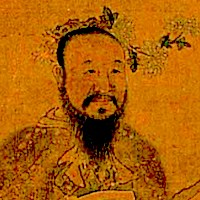
Qu Yuan 屈原 (Qū Yuán)
340 – 278 BCE
"King of the Water Immortals"
Patriotic poet, politician, Chu royal clan official, and inspiration for China's Dragon Boat Festival; Qu Yuan wrote at least some of the Chu Ci (Songs of the South) poems—one of China's two most famous ancient collections. Slandered and exiled by corrupt officials while helping King Huai, the same thing happened while advising King Qingxiang causing him to spend his time collecting folk tales and legends while writing some of China's greatest poetry. In a deep depression from his exiles as well as the Qin State's conquering of his country's capital, he committed suicide as a way of protecting his integrity. Mao tried to replace Confucius with Qu Yuan as a cultural hero.
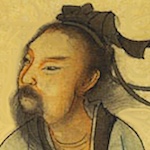
Lie Yukou 列圄寇/列禦寇/列子 (Liè Yǔkòu, Liezi)
4th C. BCE
Known for “riding the wind,” Lie Yukou was a Taoist sage who wrote the Liezi which is considered to make up a trilogy with the Tao Te Ching on the poetic side, Zhuangzi as the philosophical and the Liezi as the most practical. Often quoted by Zhuangzi, he had a large number of disciples and wandered widely advising kings and rulers. He emphasized using the pattern and rhythm of nature as a guide for human conduct, going beyond philosophical boundaries, and - as a precursor to Epictetus - a deep acceptance of perception and circumstance.
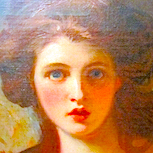
Leontium Λεόντιον (Leontion)
fl. 300 BCE
Philosopher, courtesan and mistress to Epicurus; Leontium had a child with him, helped develop his Epicurean philosophy, and wrote several books. Praised by Epicurus for the clarity of her philosophy and writings, she encouraged his policy of letting women and slaves attend his classes, and was a scandal to philosophers like Leontium and Pliny for - as a woman and prostitute - writing an erudite and devastating criticism of famous philosophers like Theophrastus. Barely mentioned in history and mainly by Epicurean critics who blamed her for her influence on ideas they disagreed with, Leontium helped create a more open and happy world.
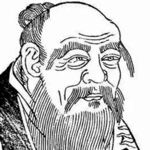
Heshang Gong 河上公 (Ho-shang Kung or "Riverside Sage”)
202 – 157 BCE
One of the two most famous commentators on the Tao Te Ching, Heshang Gong was one of the first to emphasize Taoist yoga and meditation practices. Not only meant to explain, he stressed the practical implications and ways Lao Tzu’s wisdom can guide and enrich everyday life. Almost every commentary since has used his as a foundation. He merged Lao Tzu’s political and ethical teachings into a guide for both individuals and emperors.
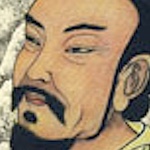
Liú Ān 劉安 (Huainanzi)
c. 179–122 BCE
Grandson of the Han Dynasty founding emperor and known as both an enlightened immortal and by his detractors as a rebel, Liu An sponsored “The Eight Immortals of Huainan” who together with him wrote the Huainanzi, a famous text that along with the works of Laozi and Zhuangzi is considered a cornerstone of Daoist philosophy. It describes how to perfect the best socio-political order and is still used as a handbook on how to train enlightened leaders. Also known as a great poet, Liu An’s fame includes being the first to record the famous Taoist Farmer Story, the first to experiment with hot air balloons as well as inventing tofu and soy milk.
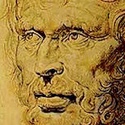
Lucretius (Titus Carus)
99 – 55 BCE
The greatest Western philosophical poet, a complete evolutionist, writer of the “loftiest poetry that any age has known” and the “most marvelous performance in all antique literature” (Durant); Lucretius described religion, the universe, and medicine from a rational point of view without superstition, faith, or dogma. An Epicurean with allegiance to only Venus and the power of love, he left behind all other gods and proposed a scientific understanding of the world including atomic theory and evolution. A huge influence on ancient times, people like Virgil and Horace; he also inspired Enlightenment era people, humanism, Thomas Jefferson and modern psychology.
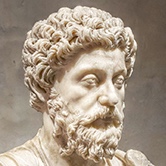
Marcus Aurelius
121 – 219 CE
One of the most important Stoic philosophers and last of the "Five Good Emperors,” during a time Gibbon described as, a period when "the Roman Empire was governed… under the guidance of wisdom and virtue.” He was known as a philosopher king and by many as the only Roman emperor who not only spoke and knew wisdom but also lived it. His book, Meditations describes setting up a just government of service and duty and was a favorite of leaders and philosophers from Frederick the Great to John Stuart Mill, from Goethe to Chinese Premier Wen Jiabao, and US president Bill Clinton.

Nagarjuna नागर्जुन
c. 150-250 CE
Considered the most important Buddhist philosopher after the historical Buddha, Nāgārjuna founded the “middle way” Madhyamaka school, developed the Prajñāpāramitā sūtras, the concept of śūnyatā, or "emptiness," the ultimate and relative “Two Truths.” He also served as the head of Nālandā University and as the "father of iatrochemistry" practiced Ayurveda medicine. An important factor in Buddhism’s spread to Tibet, China, Japan and other Asian countries, his teachings represent the pinnacle of philosophical insight and wisdom.
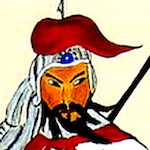
Guan Yu 关羽 (Guan Gong, Guān Yǔ)
160 – 270 CE
Considered a Bodhisattva and protector of Dharma in the Chinese Buddhist tradition, the ”Saintly Emperor Guan" and “subduer of demons” in Taoism, Guan Yu is also revered today by families, businesses, Chinese secret societies and Triads, by the criminal underworld as well as policemen. One of the best known Chinese historical figures throughout East Asia, he represents the epitome of loyalty and righteousness. Revered for his bravery and virtue, he has also become a popular figure in historical fiction, Chinese opera, movies, manga and even video games.
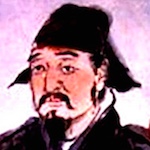
Wang Bi 王弼
226 – 534 CE
Although he only lived 23 years, for more than 1,700 years most Chinese scholars have considered Wang Bi the most important interpreter of the Tao Te Ching and his edition of this has been used for almost every translation into a Western language. A political theorist who challenged the prevailing Confucian orthodoxy, he interpreted Lao Tzu in a way consistent with Confucius and compatible with both indigenous Chinese beliefs and the introduction of Indian Buddhism. Interesting and inspiring how one so young can understand so deeply and influence the course of history so much.

Tao Yuanming
365 – 427 CE
Greatest Chinese poet during the Six Dynasties period (220 - 589 CE), one of the biggest poetic influences on Zen and Beat poetry, and in a small group of history’s best poets; stories say Tao Yuanming drained rivers of wine with friends in glades on moonlit nights celebrating the miracle and wonder of moment-to-moment perception. Military/government career drop out, back-to-the-land champion, discoverer of Peach Blossom Spring; he didn’t follow in the steps of any religion, didn’t do any of the recommended practices; he reveled in the fulness of here-and-now working in his garden, reading books, playing the zither, chopping wood and carrying water.
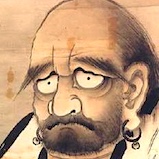
Bodhidharma 菩提達磨 (Daruma)
5th-6th C. CE
28th Zen Patriarch and first Chinese patriarch, the Indian prince Bodhidharma brought Chan Buddhism from India to China and began the Shaolin Kung Fu tradition founding the Shaolin Monastery. Known as "The Blue-Eyed Barbarian,” his direct authenticity confounded and impressed everyone from the emperor to famous teachers to peasants. He directly taught the wisdom beyond words, mind-to-mind and heart-to-heart transmission. In Japanese legend, he also traveled to Japan and met Prince Shotoku who then became the first great patron of Buddhism there.
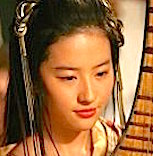
Arya Prajnadhara
5th century CE
27th Zen Patriarch, one of the few women Zen lineage leaders, and teacher of Bodhidharma; details about Arya Prajnadhara’s life are rare and difficult to find. Because of being a woman Patriarch in this predominantly male tradition and because of encouraging Arya Bodhidharma’s travels to China; although being almost completely unremembered by history, she had a huge influence on the evolution of Buddhism. Since her main disciple moved to China and Chán Buddhism mixed with Taoism, this influence in India diverted into the Maha Siddha tradition, spread to Tibet as Vajrayana, and reunited with Chán as Maha Ati or Dzogchen.
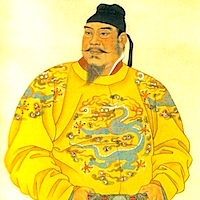
Taizong of Tang 唐太宗 唐太宗 (Li Shimin)
598 – 649 CE
One of China’s greatest emperors, co-founder of the Tang Dynasty which became the world’s most civilized power, and architect of a golden age—China’s most creative period; Taizong’s reign became the standard and measure for all future leaders. A scientific and Confucian scholar, he began by killing his brothers and expanding the empire but soon devoted himself to increasing peace and prosperity. Without personal dogma and prejudice, he welcomed Buddhist monks, Nestorian Christians, Zoroastrians, and made the capital so beautiful that it attracted hordes of tourists from as far away as India and Europe. He wrote a book reconciling Buddhism and Taoism, another one on government that became a popular reference for leaders in many different countries, promoted the arts, and it was said of people during that time, “whoever was a man, was poet.” Over 1000 years later, a Manchu emperor commissioned an anthology of Tang poems that included 48,900 poems by 2,300 poets.

Wu Zetian
624 – 705 CE
In more than 4000 years of Chinese history, Wu was the only female emperor (not just consort or dowager). Historians accused her of violent acts - murder, torture and corruption; but this may be history being re-written by the victors, later Confucian successful attempts to discredit her and the feminine equality she promoted. She made the Tao Te Ching required reading for imperial university students and continued the Tang tradition of claiming Laozi as a clan ancestor. She supported self-sufficient farmers and ensured fair land allocations. Three of her sons also became emperors and one of her grandsons became the renowned Emperor Xuanzong of Tang.

Chéng Xuanying 成玄英 (Ch'eng Hsuan-ying)
631 – 655 CE
A Daoist monk and exceptional scholar during the early Tang dynasty, Xuanying wrote highly respected commentaries and summaries on both Lao Tzu and Chang Tzu. The first emperor of Tang invited him to the capital and gave him the title, “Master of West China” but he was later exiled. He taught that “mystery” means profundity, that it persists neither in Being nor in Nonbeing, that we should not persist in “mystery,” but negate it. This led to Zhuangzi's thought and the Buddhist philosophy of the Middle Way. His tradition was called the “Twofold Mystery School” and his writings on this made it the main influence on Daoist philosophy of the time.

Huineng 惠能 (Huìnéng, Enō)
638 – 713 CE
The Sutra of Hui Neng
Traditionally seen as the Sixth and Last Patriarch of Chán Buddhism, Huineng symbolizes the essence of Zen and the non-thought lineage. From a poor family, Huineng’s father died when he was young and he never learned to read and write. While working as a laborer, he heard the Diamond Sutra and immediately set off to study with the Fifth Patriarch. Since illiterate, he could only work at the monastery doing chores like chopping wood and pounding rice. Because of his deep understanding and realization though, he because the dharma heir. Like the famous story about not mistaking a pointing finger for the moon, he deeply understood the sense, not only the words.
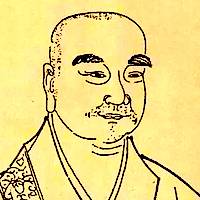
Yòngjiā Xuānjué 永嘉玄覺 (Yung-chia Ta-shih; Yōka Genkaku; "The Overnight Guest")
665 – 713 CE
Called “the Overnight Guest" because of proving his realization to Huineng in just one night, Yongjia is best remembered because of his writings, especially the Song of Enlightenment or Song of Freedom (Shodoka 證道歌) still popular in contemporary Western Zen circles and memorized by students in Asia. It emphasizes practice over study and the contrast between dharma nature and buddha nature. Yongjia is famous for not having a teacher but realizing enlightenment from only reading and contemplating the Sutras.
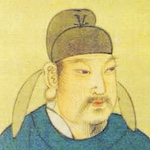
Xuanzong 武隆基 (Hsuan-Tsung or Wu Longji)
685 – 756 CE
Tang emperor famous for many things including his poetry and calligraphy as well as establishing one of China’s golden ages. He was deeply interested and influenced by both the Taoist and Buddhist traditions and his long reign of 43 years was a period of peace, political stability, and economic prosperity with many advances in education, music, painting, sculpture, and literature. He wrote a commentary on the Tao Te Ching, Yu-chu tao-te-chen-ching and had others commissioned.
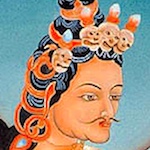
Saraha
8th century CE
Earliest Mahasiddha, founding father of the Buddhist Vajrayana and Mahamudra tradition; Saraha was expelled from a monastery for drinking alcohol, found a young low caste bride, became a maker of arrows, and went on to write the main Mahamudra meditation text and become a great yogi and master song writer. Like Lao Tzu, he followed the same “Inborn Natural Way” and began the lineage which descended through time to Tilopa, Naropa, Marpa, Milareapa and now to the Gyalwang Karmapa.

Li Bai 李白 (Li Bo)
701 – 762 CE
The greatest Chinese poet so widely respected that a crater on the planet Mercury was named after him, that he would appear as a character in books written by Hermann Hesse, John Steinbeck, Guy Gabriel Kay, Simon Elegant, Ursula Le Guin, and Philip K. Dick.. Immensely influential during his own time as well as subsequent generations in China, his influence extends to American Imagist and Modernist poetry through poets like Ezra Pound, Charles Bukowski, and Derek Walcott. Mastering Confucius at 10, he began writing poetry still famous today. At 12 he went to live in the mountains studying and writing, returned and wandered, married but but didn't make enough money so his wife left with their children. He became a favorite of the emperor, was rejected, wandered again, was imprisoned, sentenced to death, released to wander again, and legended to drunkenly die in a river while trying to embrace the moon's reflection.

Han Shan (Cold Mountain)
c. 730-850 CE
Claimed by Buddhists as a Buddhist, by Taoists as a Taoist; Han Shan poked fun at both and living beyond any narrow categories like these, through his poems communicated a universal wisdom and truth. Not attached or attracted to honor and gain, he laughed at offered high positions and wealth. The favorite poet of everyone from Wang Anshi (1021-1086), one of China’s most famous prime ministers to Jack Kerouac who in 1958 dedicated his book Dharma Bums to him, Han Shan’s poems express complete spontaneity, total indifference to praise and blame, and continual realization of pure consciousness in the simple, ordinary details of life.
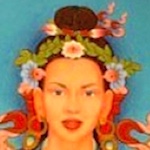
Yeshe Tsogyal ཡེ་ཤེས་མཚོ་རྒྱལ (Sky Dancer)
777 – 837 CE
Believed to be the reincarnation of the Buddha's own mother, Yeshe Tsogyal is the most famous of the enlightened women of Tibet and considered a female Buddha manifesting in the world in a way to teach an enlightened path in everyday life. She appeared as ordinary girl, princess, prostitute, business woman, and enlightened guru. Given from the king, Trisong Detsen’s harem to Padmasambhava who freed her, she helped establish Buddhism in Tibet and concealed terma for future generations.
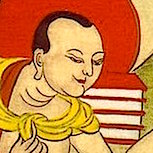
Catrapa ཙ་ཏྲ་པ། ("The Lucky Beggar")
750 – 850 CE
Mahasiddha #23
Catrapa while begging always carried a small dictionary that attracted a wise teacher who asked him about the book and then his life. This led to teachings and a practice of dissolving all concepts, prejudice, negative and moral conditioning, and a blending of action with perception into a deep, non-dual awareness of each everyday experience in life. Instead of teaching morals, ethics, and discipline; he exemplified and taught the crazy wisdom of wu wei, enlightened spontaneity based on direct, unfiltered realization. Mahasiddha #2

Lü Dongbin 呂洞賓 (Lü Tung-Pin)
796 CE -
Scholar and poet, de facto leader of the 8 Immortals, founder of the School of the Golden Elixir of Life and the internal alchemy tradition; Lu Dongbin is named in famous Chinese proverbs and wrote the Secret of the Golden Flower. An easy-to-anger, prolific poet and ladies man prone to bouts of drunkenness; he’s considered an emanation of the Bodhisattva Guanyin (Avalokiteśvara) dedicated to helping people realize wisdom and learn the Tao. Continually popular in folklore, he was portrayed by Jackie Chan in the movie The Forbidden Kingdom.
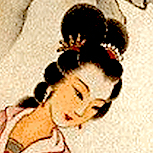
Cao Daochong 道寵 (Daochong or Ts’ao Tao-Ch’ung)
fl. 960 - 1268
Mysterious Taoist nun during the Tang Dynasty, Cao Daochong walked in Lao Tzu’s footsteps of inscrutability and disregard for fame and fortune. Though unassuming and humble, her deep insight, wisdom, and compassion speak through the centuries through her book, the Lao-tzu-chu. Living during the time of the great Mahasiddhas in India, Naropa and a major transmission of Buddhism into Tibet, she was a contemporary of other great women teachers like Dharima, Manibhadra, Niguma, Arwa al-Sulayhi, Heloise, and Hildegard of Bingen.
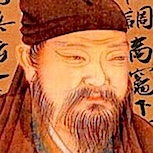
Wang Anshi 王安石
1021 – 1086 CE
Poet, economist, statesman, and one of China’s most famous prime ministers during a time of rampant nepotism and an extreme imbalance between the rich and the poor; Wang initiated major reforms to break up monopolies, expand the civil service examination system, increase currency, and begin social welfare programs to “prevent the working classes from being ground into dust by the rich.” Although removed from power and imprisoned by political rivals, his reforms still ripple through Chinese history. He started public orphanages and hospitals, set up price and wage controls, pension funds for the old, poor, and unemployed — all while writing commentaries on Lao Tzu and some of China’s most famous poems.

Gesar of Ling གེ་སར་རྒྱལ་པོ།
11th century CE
Generally considered a real person in Tibet and Mongolia, a legend like King Arthur by western scholars, Gesar represents the heroism and wisdom necessary to overcoming the negative impulses in society, culture, and government that oppress people and prevents happiness from flourishing. Called the world's last living epic, the Gesar story includes more than 120 volumes, a million verses, and 2100 hours of oral performance - the largest body of epic literature in history. The Gesar epics derives from Indian Buddhism, native Tibetan Bön, and alchemical Taoism. Like Homer’s Iliad, they include performance, poetry, philosophy, education, politics and religion.
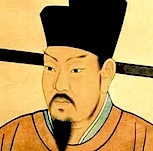
Lu Huiqing
1031 – 1111 CE
Ally to Wang An-shih and aid to his political reform, Lu Huiqing’s commentaries demonstrate his deep Taoist understanding and ability to apply Lao Tzu’s insights and suggestions to his contemporary political and social situation. A seminal resource for Chiao Hung, the Emperor Shenzong of Song requested and received these commentaries in 1078 and used them to strategize and implement radical new policies to improve the situation for peasants and the unemployed. These reforms foreshadowed and helped inspire the modern welfare state.

Shen Kuo 沈括 (Mengxi)
1031 – 1095 CE
Greatest scientist of his age, statesman, inventor, poet, finance minister, horticulturalist, engineer, art critic, diplomat, military general, musician, and commentator on ancient Daoist texts; Shen Kuo discovered the magnetic compass needle and the concept of true north which revolutionized navigation 400 years before known in Europe, popularized Bi Sheng’s invention of moveable type 400 years before Gutenberg, researched and described climate change, made the first raised-relief map, described UFOs and beneficial insects, re-discovered an ancient Chinese surveying tool unknown in Europe until 1321. Politically aligned to Wang Anshi, he was impeached, exiled and spent his older years with the "nine guests" — playing music, weiqi (Go), Chan meditation, painting, tea, alchemy, poetry, conversation and wine.
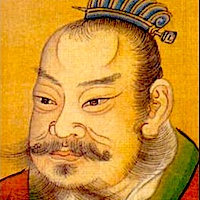
Su Shi 苏轼 (Dongpo, Su Tungpo)
1037 – 1101 CE
"pre-eminent personality of 11th century China"
Writer, statesman, poet, painter, calligrapher, pharmacologist, and important political figure; Su Shi wrote some of his time's most well-known poems and prose as well as essays on topics from travel to the iron industry. An exceptional and highly honored scholar, while serving in the Hangzhou government, he constructed the famous pedestrian causeway across West Lake. His poems got him into political trouble leading to two long exiles and imprisonment; but also, they brought him a fame that spread to many other countries and continues today. His poems on Buddhist topics became an important influence on Dōgen, founder of the Zen Sōtō school.
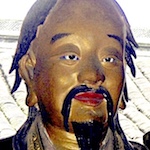
Yuanwu Keqin 圜悟克勤 (Yuánwù Kèqín)
1063 – 1135 CE
Author of the most famous Zen book, The Blue Cliff Record, Yuanwu became a renowned spokesperson for the non-thought lineages teaching a broad, open approach to religion beyond sectarianism, dogma, emotion and ritual that he saw as enemies to true understanding and realization. He left his Confucian family for a Buddhist monastery at a time when Confucianism, Buddhism, and Taoism were mingling and rejuvenating each other. His influence helped the spreading of this powerful force throughout the country and culture.
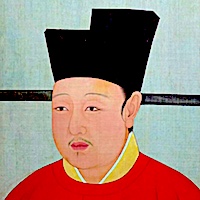
Huizong 徽宗 (Emperor Huizong of Song)
1082 – 1135 CE
Great artist, failed ruler
Polymath, poet, musician, called “one of the greatest Chinese artists of all time,” but an incompetent leader taking disastrous advice to disastrous results; Huizong demonstrated the difficulty of blending art and politics. Collecting over 6000 paintings, he sponsored artists, wrote poems, painted, reformed court music, and wrote dissertations on Taoism, tea ceremony, and medicine. His foreign policy decisions however and military neglect led to a Jurchen invasion and the ending of the Song Dynasty, his demotion to commoner status, and the last 8 years of his life spent as the “Besotted Duke" jailed in a remote, cold province prison. He promoted monumental philanthropic efforts including founding orphanages, hospitals, and schools; but, his failure to balance his religious Taoism with the Confucian mainstream prevented the maintenance of a strong government.
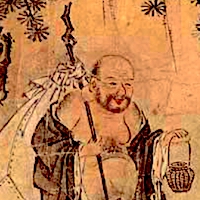
Kakuan Shien 廓庵師遠 (Kuo-an Shih-yuan, Kuòān Shīyuǎn )
1100 – 1200 CE
Most popular Ten Bulls artist/poet
Chan Buddhist monk, artist, and poet; Kakuan expanded on an old Taoist story that used an ox and herding as symbols for the spiritual path. He added two new pictures to a previous version that had 8 and published his new verses and pictures in c, 1178. These new additions emphasized returning to the world and linking closely realization with everyday life. Dramatically symbolizing the path to enlightenment, his rendition became the most popular then and continues to hold that position today in spite of many newer attempts. Exemplifying the close connection between Taoism and Zen, his Ten Bulls became closely identified with Zen in general as well as a continual source of inspiration for students.
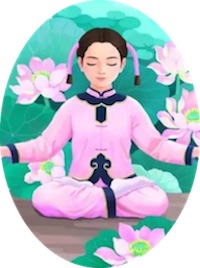
Sun Bu'er
1119 – 1182 CE
Sun Bu'er 孫不二 (1119 – 1182)
Taoist priestess, one of the Seven Masters of Quanzhen, mother of 3, beautiful, intelligent, wealthy, and known as “Clear and Calm Free Human;” Sun Bu'er founded the Purity and Tranquility School and wrote many famous poems and secret Taoist texts. She developed a “science of essence” concerned with psychologically going beyond the influence of both inherited personality and learned conditioning as well as a “science of life” developing ways to increase health and energy. Destroying her beauty to prevent male attack, she became the only woman included in the famous Taoist “Seven Perfected,” and through the ages a role model and inspiration for women following a spiritual path.

Ibn' Arabi Ibn 'Arabi
1165 – 1240 CE
“the foremost spiritual leader in Muslim history”
Islamic Scholar, Sufi mystic, poet, philosopher and genuine saint; Ibn ‘Arabi was born during and at the center of a time and place where Christian, Jewish, and Islamic thought were cross-pollinating with a rediscovery of ancient Greek and Roman wisdom. In over 350 literary works including some of the finest poetry in the Arabic language, he influenced Islam away from rigid orthodoxy toward a universal understanding that appreciates each person’s unique and personal spiritual path above doctrine and belief. A polarizing figure in Muslim culture, he’s known as either “the foremost spiritual leader and Sufi master in Muslim history” or as a heretic and apostate.
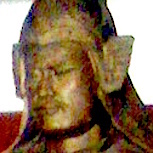
Li Xizhai (Li Hsi-Chai)
12th century CE
I Ching scholar, Taoist yoga master, and author whose commentary on the Tao Te Ching, Tao-te-chen-ching yi-chieh applies Lao Tzu’s teachings to politics, the government, and how to rule with sanity and for the good of everyone. Not well-known in history but another behind-the-scenes, powerful influence for the good, the sense behind the words, and the evolution of consciousness. Tao-te-chen-ching yi-chieh, Red Pine

Francis of Assisi
1181 – 1226 CE
One of the most venerated religious figures in history and considered the patron saint of animals and the natural environment, a pope confirmed Francis as “Patron Saint of Ecology.” He believed nature itself is “the mirror of God” and he’s closely connected to the lineage of Lao Tzu, the early Taoists, Thoreau, Emerson, and Native Americans. He traveled widely, worked hard to end the Crusades, dedicated himself and his followers to poverty and helping the poor, exposed the materialism of the church leaders of his time, and by many accounts successfully changed history.
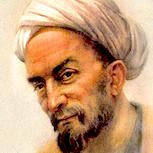
Saadi Shiraz سعدی شیرازی
1210 – 1292 CE
One of the greatest Persian poets and literary influences in medieval times and an influence on the West through people like Goethe, Hegel, Pushkin, and Barack Obama; Saadi - with a Zen-like approach similar to the great Tibetan teacher, Marpa - blended a mystical Sufi realization with a practical traveling merchant lifestyle. Escaping the hardship and poverty of his Baghdad youth, he traveled widely for 30 years including 7 years of imprisonment enslaved to hard labor. He then wandered 20 more years during the Mongol invasions mingling with ordinary people, bandits, refugees, spiritual teachers and farmers translating their experiences into poetry and wisdom teachings.
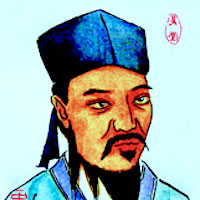
Wu Cheng 吴澄
1249 – 1333 CE
"Mr. Grass Hut"
Important scholar, poet, and professor; Wu Cheng supported and continued the Neo-Confucian movement begun by Zhu Xi. He went further than Zhu Xi’s emphasis on synthesizing the different traditions, included more Taoism, and worked to extend the standard curriculum beyond just the Four Books. He opposed superstitious beliefs and criticized the way scholars understood and practiced divination techniques. He wrote popular commentaries on the Tao Te Ching and most of the classic Chinese texts but his biggest influence was as a teacher and through his students who developed the School of the Mind and Heart during the Ming (1368-1644) and Qing (1644-1912) dynasties.

Meister Eckhart (Eckhart von Hochheim)
1260 – 1328 CE
Philosopher, theologian, and mystic; Meister Eckhart represents a cultural and philosophical pivot at the end of the Middle Ages. In his own words but like Lao Tzu and the Buddha, he taught that Enlightenment is hidden inside our hearts and through emptiness, compassion and egolessness we become one. Though brought before the Inquisition and tried for heresy, his influence since includes from Schopenhauer (who said, “Buddha, Eckhardt, and I all teach essentially the same.”), to the Theosophical Society, to the politics of the UN’s Dag Hammarskjöld, to the psychology of Erich Fromm, to artists like Van Gough and Dürer, to authors like J. D. Salinger, and in modern times to theologians like Matthew Fox and Eckhart Tolle.

Ming Taizu 明太祖 (The Hongwu Emperor, Zhu Yuanzhan)
1328 – 1398 CE
One of the most influential emperors in all of Chinese history
Peasant farmer, destitute beggar at 16 when his family was killed in a flood, and Buddhist monk until his monastery was destroyed by the Mongols, Ming Taizu dramatically rose above his circumstances and led the rebellion against the Yuan and founded the Ming dynasty. As emperor he protected the poor, created irrigation systems, planted 50 million trees, and distributed land to peasants greatly increasing their standards of living. The population increased from 60 to 100 million. He studied the Tao Te Ching, based his government on Taoist principles drawing up a new legal code considered one of the greatest achievements of the age and also supported Islam. He prevented corruption and protected the weak but per historians was corrupted himself in later life.
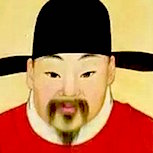
Chiao Hung (Jiao Hung)
1540 – 1620 CE
A voice for the real, for substance, for seeing through concepts and artificiality, and an author of one of the most useful Tao Te Ching compilations, the Lao-tzu-yi written in 1587; Chiao Hung included his own thoughts as well as mainly Sung dynasty commentators. Writing during a time of radical change from Ming Neo-Confucianism into new forms, his influence helped restructure Neo-Confucianism, and brought a resurgence of Taoist insight and influence into Chinese philosophical history.

Deqing (Te-Ch’ing)
1546 – 1623 CE
A leading Buddhist monk and poet during the Ming Dynasty, Deqing had a big influence on the Wanli Emperor but was caught in the middle of political conflict between the emperor and his mother as well as tensions between powerful Daoists and Buddhists. In 1595 he was put on trial, imprisoned, and later exiled. His monastery (one of the largest Buddhist centers in China) was burned to the ground. Pardoned after 20 years, he resumed his wandering, teaching, and altruism. Regarded as one of the great reformers of Chinese Buddhism during the later Ming Dynasty, he was renowned and admired as poet, teacher and commentator. Lao-tzu tao-te ching-chieh, Red Pine
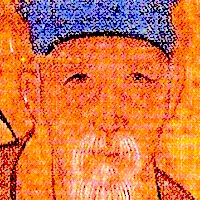
Chén Jìrú 陳繼儒
1558 – 1639 CE
Collector and publisher of rare books, powerful influence on Chinese culture and taste during the 16th century, Chen’s influence continues today. His book, Tea Talks (茶董補) written in 1595 is still popular and quoted in Japan, China, and here now. Creator of the Yixing-style purple clay teapots, his innovations in pottery, painting, literature, and calligraphy continue. Instead of taking the familiar path of respected literati and entering politics, Chen burnt his scholar robes as a symbol of rejecting that path and as a launching into a solitary lifestyle immersed in Buddhism and Taoism. Originator of the famous crane soaring among clouds image, he wrote an autobiography that included his imaginary death.
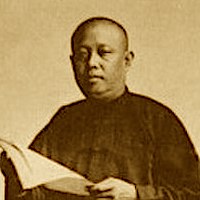
Li Hungfu
1574 – 1574 CE
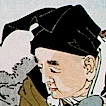
Matsuo Bashō 松尾 芭蕉
1644 – 1694 CE
The most famous poet of the Edo period in Japan and still internationally renowned and recognized as the greatest master of haiku, Bashō left his samurai status, urban fame and fortune to wander throughout Japan writing poetry. During periods of history in Japan, criticizing his poetry was considered blasphemous and many of his poems are reproduced on monuments. Some scholars believe he invented haiku and his verse greatly influenced Ezra Pound, the Imagists, and Beat Generation poets.
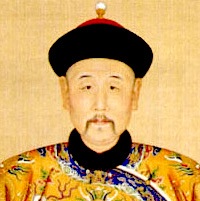
Kāngxī 康熙帝
1654 – 1722 CE
Longest-ruling Chinese emperor, consolidator of the Qing dynasty during the transition from the Ming, first Chinese emperor to play a western musical instrument, inventor of a Chinese calendar, and supporter of bringing Western technology into China; Kangxi administered the normal political and social emperor activities engaging in war, law, economics and having 56 children; but also, he thought deeply about life and realization. A skilled politician who could combine power, flexibility and tact with his Taoist/Buddhist tradition; he traveled extensively, rarely stopped talking communicating and listening to people everywhere, and brought an exceptional openness to his autobiography exposing his faults, uncertainties, and disillusionments as well as his accomplishments and insights.
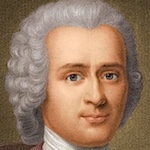
Jean-Jacques Rousseau
1712 – 1778 CE
Motherless from almost birth, abandoned by his father, poor in health and income; Rousseau wandered on his own for 12 years challenging the status quo and rejected by society as a dangerous rebel or insane criminal. Stoned by neighbors when he went for walks, harassed by police, and expelled from countries; he went on to become “the finest thinker of his time,” a main source for Jefferson and the Declaration of Independence, a cause of the French Aid for the American Revolution, and a seminal influence on Tolstoy, Wordsworth, Thoreau, Byron, Shelly, Keats, Schopenhauer, Kant, Goethe, and Marx. He transformed education, inspired the French Revolution and the Romantic Movement, wrote political and social books that became cornerstones of modern thought.
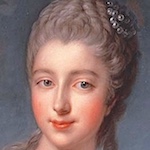
Madame de Pompadour (Jeanne Antoinette Poisson)
1721 – 1764 CE
Called by Will Durant “One of the most remarkable women in history” as “the most cultured woman of her time” and by Voltaire “one of us,” Madame de Pompadour as chief mistress of Louis XV became a brilliant governor of France, protector of Voltaire, savior of Diderot’s Encyclopedie, patron to Rousseau, Montesquieu, and the “Age of Enlightenment” in general. Excommunicated by the Catholic Church and the “Queen of Rococo,” she supported philosophy, literature, music and art as porcelains, hair styles, dresses, chairs, ribbons, beds, and dishes were named after her. Beautiful, charming, and intelligent, she led France to its highest artistic influence on European civilization as well as making her country much stronger economically and politically.
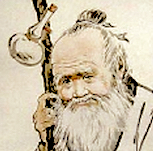
Liu Yiming 刘一明 (Liu I-ming)
1734 – 1821 CE
11th-generation Shanxi Dragon GateTaoist master, doctor, merchant, coolie, builder and main representative of the Neidan school of Internal Alchemy; Liu Yiming alternated travel, seclusion, and intense practice during his early life and then settled into teaching and writing, restoring temples, and helping poor families. He taught the unity of the ”Three Teachings" (Taoism, Buddhism, and Confucianism) and how they complement, enrich, and support each other. He described Lao Tzu’s “non-doing” (wuwei 無為) as the highest form, methods of Confucius as more practical for most people and then the Buddha’s “doing first and then non-doing” as more practical for most people.
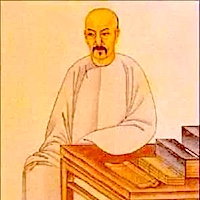
Zhang Xuecheng 章学诚 章学诚 (Chang Hsüeh-ch'eng)
1738 – 1801 CE
A famous historian, philosopher, and writer who was mainly unknown during his lifetime dying in poverty with few friends; Zhang Xuecheng's fame only began almost 100 years after he died. A revolutionary thinker, he crossed the status quo view that Confucianism is based on timeless principles and described it as an evolving set of realizations deepening as it faced and explained contemporary changes. He condemned self-serving partisanship, encouraged diversity, and individuation. A true advocate for the words over the sense, he emphasized the need to transcend language rather than becoming a slave to concepts. His focus on China's difficult struggle to blend the strong Taoist, Buddhist, and Confucian traditions into what's called now neo-Confucianism; has a powerful relevance to our own time of intense cultural, political, and religious amalgamation.
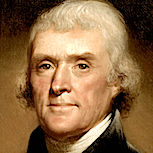
Thomas Jefferson
1743 – 1826 CE
American founding father, main author of the Declaration of Independence, Virginia governor, first Secretary of State, US Vice President and one of America’s greatest presidents; Jefferson negotiated the Louisiana Purchase almost doubling the size of the country and wrote a book considered the most important American one written before 1800. President of the American Philosophical Society, mathematician, architect/designer of the Virginia State Capitol and Monticello, University of Virginia founder, avid horticulturalist and farmer, naturalist deeply interested in birds, inventor of an important new plow design as well as the swivel chair, and speaker of more than 8 languages; he exemplified the ideal of a true Renaissance Man. Although he owned hundreds of slaves, as a young lawyer he defended freedom-seeking slaves, signed an act prohibiting their importation in 1807, and is believed to have secretly “married” and had children with a black woman, Sally Hemings. Always in debt with cash flow problems from continual experiments and pushing on the boundaries of the possible, his creative spirit never died.

William Blake
1757 – 1827 CE
A poet, painter, and songwriter mainly unrecognized during his life and at the time considered mad, Blake is now called “far and away the greatest artist Britain has ever produced” and “a seminal figure in the history of poetry.” Not fully appreciated until more than 200 years after he died, he’s now considered one of the most powerful impacts on twentieth century culture with an enormous influence on Carl Jung, Aldous Huxley, poets like William Butler Yeats and Allen Ginsberg, songwriters like Bob Dylan and Van Morrison. The origin of graphic novels and fantasy art trace back to Blake.
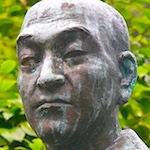
Ryokan 良寛大愚 (Ryōkan Taigu,“The Great Fool”)
1758 – 1758 CE
One of the most popular personalities in all of Japanese history, neither priest or lay person, “unthinkably kind” but strict practitioner, saturated with enlightenment yet calling himself “The Great Fool;” Ryōkan was a scholar, calligrapher, and poet yet spent his time with ordinary people. He took no disciples, gave no sermons, took no positions, and spent his time begging, playing with village children, writing and speaking some of the East’s best poems that bridge the gap between understanding the words and understanding the sense. Non-sectarian, a critic of institutional power and professionalism, and startlingly honest, today Ryōkan is a true Japanese national hero familiar to almost every child and respected by young and old, rich and poor, powerful and humble.
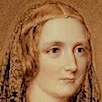
Mary Shelley
1797 – 1851 CE
Caught between her famous father’s Enlightenment political theories (William Godwin) , her famous husband’s allegiance to the ethos of Romanticism (Percy), and her famous mother (Mary Wollstonecraft) who is considered a founder of feminist philosophy; Shelley’s work promoted Taoist-like values emphasizing collaboration over competition, compassion over personal gain, the true civilizing role of the feminine principle. Her novel, Frankenstein foreshadowed our modern era and how easily we can become enslaved and manipulated by our inventions. A voice against superstition and dogma, her books became a beacon for the era of Romanticism, liberal politics, and gender equality.
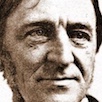
Ralph Waldo Emerson
1803 – 1882 CE
Champion of individualism
Friend and mentor to Henry David Thoreau and godfather to William James, Emerson championed individualism as a counterbalance to society’s conformist pressures. He wrote what Oliver Wendell Holmes considered America's “Intellectual Declaration of Independence” and he summarized his philosophy as “the infinitude of the private man.” The most influential writer of 19th-century America, he was called “the Concord Sage” and became the leading voice of intellectual culture in the United States influencing American religions to become more gnostic, less fundamentalist and conservative.
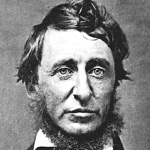
Henry David Thoreau
1817 – 1862 CE
Father of environmentalism and America's first yogi
Dedicated abolitionist, "America's first yogi," champion of nature and the natural, “father of environmentalism;” Thoreau brought a little Lao Tzu into 19th Century America. Instead of following in the pattern of his piers leading a life of “quiet desperation,” Thoreau followed much more in the Tao Te Ching’s style of Wu Wei. His non-violent approach to opposing slavery and the Mexican-American War inspired future leaders like Gandhi and Martin Luther King. Although one of America's most famous writers, during his lifetime his most famous book, Walden didn’t sell enough copies to pay for the paper it was printed on.
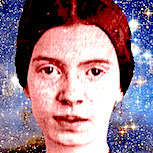
Emily Dickinson
1830 – 1886 CE
Though now considered one of the greatest figures in American literature and one of the most important poets, only a few of Dickson’s poems were published during her lifetime and those were significantly edited and changed by publishers. Her first collection wasn’t printed until years after her death and a complete collection wasn’t published until 1955. A serious student of botany, she made and maintained a vast collection of plants; highly introverted, creative, unique, and challenging the assumptions of her time; she seldom left her house but wrote 40 volumes of almost 1800 poems.

Paul Carus
1852 – 1919 CE
The Teachings of Lao Tzu
Self-described as “an atheist who loved God,” Paul Carus was one of the first Americans with a serious interest in Buddhism. He saw Taoism and Buddhism as complementary and published 75 books and 1500 articles on social issues, history, science, religion, politics, logic, anthropology and mathematics. He worked closely with D. T. Suzuki and corresponded with thought-leaders of his time like Tolstoy Thomas Edison, Nikola Tesla, and Booker T. Washington. He defined his philosophy as, “everything is fraught with life; it contains life; it has the ability to live” and promoted a “Religion of Science,” interfaith dialog, and a “cosmic religion of universal truth.”
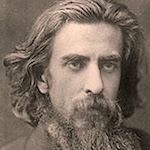
Solovyov
1852 – 1900 CE
Model for Dostoyevsky's characters Alyosha and Ivan in The Brothers Karamazov, major philosophical inspiration for numerous writers from Leo Tolstoy to Rudolf Steiner, Solovyov blended Hellenistic, Buddhist, Kabbalistic, early Christian and Gnostic traditions into a philosophy of Sophia as the merciful unifying feminine wisdom of God evolving consciousness and religion. This philosophy tried to reconcile all bodies of knowledge and understanding in a common ground of absolute unity reconciling all opposites, contradictory ideas, traditions and peoples. Called by the press either a Protestant, Jew, Catholic, rationalist, mystic, or nihilist; he defied categories including place and stable career spending most of his life wandering without a home.
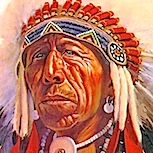
Black Elk (Heȟáka Sápa)
1863 – 1950 CE
Holy Sioux Medicine Man, Heyoka (sacred clown), wounded warrior, seer of wisdom-visions; Black Elk was spiritual but pragmatic - he became Catholic because “My children had to live in this world,” but later told his daughter, “The only thing I really believe is the pipe religion.” He went to England with Buffalo Bill's Wild West show in 1887, got lost, and traveled through Germany, France, and Italy where he saw that “The Holy Land is everywhere,” and returned with insight that inspired both the American Indian Movement and some of the best elements within European-American culture: civil rights, organic farming, renewable energy, sustainable living, and the environmental movement.
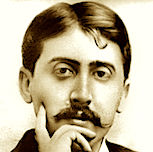
Marcel Proust
1871 – 1922 CE
Apostle of Ordinary Mind
Apostle of ordinary mind, the “Proustian moment,” and one of the world’s greatest novelists; Proust never worked a job, suffered ill health his entire life, lived with his parents, and spent his last years in bed sleeping all day and writing all night. W. Somerset Maugham called his 3200-page novel, In Search of Lost Time the "greatest fiction to date” and - a huge influence on modern writers - it’s Michael Chabon’s favorite book, in lists of top 10 greatest books of all time, and called "the most respected novel of the twentieth century." Abandoning dramatic action and complicated plot, his novels evoke the sacred in the commonplace, wonder and magic of ordinary experience, and propose art in everyday life as the true meaning of life deeper than all fame, fortune, pleasure, power, or even love.
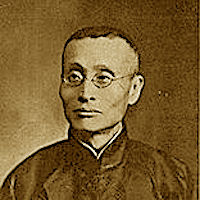
Jiǎng Wéiqiáo 蔣維喬
1873 – 1958 CE
Father of modern Qigong
Professor, politician, and father of modern Qigong; Jiang Weiqiao was desperately suffering from tuberculosis when he discovered an inner-alchemy Taoist text. Following these practices and discovering the “microcosmic orbit,” he healed himself and became inspired to share these healing benefits with more people. Rather than taking a more philosophical or religious approach, he described these practices in scientific and medical terms. This avenue freed the tradition from most of its superstitious trappings and launched a surge of modern popularity. Working for the Chinese Ministry of Education, Jiang helped modernize educational systems throughout East Asia. During this time he discovered more serious Buddhist traditions, blended these with his Taoist understanding and taught this at many colleges and universities.
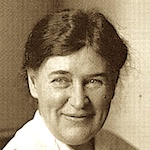
Willa Cather
1873 – 1948 CE
Modern day Lao Tzu
Wonderful novelist with a flare for evoking a deep appreciation for nature and the natural world, Willa Cather championed the values of self-sufficiency, independence, and harmony with nature. Nostalgic for the time when most people lived on farms, she used “the rising and setting of the sun” as a major theme and honored the struggle of exiled immigrants. Infusing meaningfulness and sacred outlook into simple, daily tasks she unknowingly continued the Zen spirit and understanding Lao Tzu wrote about so much longer before.
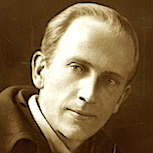
A.A. Milne (Alan Alexander Milne)
1882 – 1956 CE
Student of H. G. Wells, friend of authors J. M. Barrie and Arthur Conan Doyle, military propaganda writer during World War I and peace advocate afterwards; Milne resisted the selling out of authors for monetary gains saying he would rather write a telephone directory at his own inspiration than a Blank Verse Tragedy at others’ direction. Made famous after his death by Walt Disney productions, his Winnie the Pooh imagery - second only to Mickey Mouse - inspired $6 billion worth of products. His “children’s” books (especially Now We Are Six) open psychological doors into direct experience of nowness and appreciation of the sacred quality of simple, everyday perception.

Pearl Buck
1892 – 1973 CE
Growing up and living in China as the daughter and wife of Christian missionaries, Pearl Buck described their arrogance and manipulation arguing against the benefit of missionaries and an institutional church. Denounced in China during the cultural revolution and prevented from visiting with Richard Nixon, she wrote 60+ books, won a Pulitzer, and became the first American woman to win the Nobel Prize for Literature. Long before they became popular or safe positions, she publicly challenged gender and racial discrimination while founding the first interracial and international adoption agency that placed over 5000 “unadoptable” children.
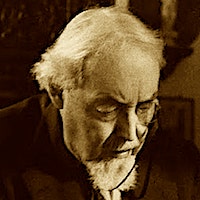
Wei Wu Wei "O.O.O.", Terence James Stannus Gray
1895 – 1986 CE
Skillful translator from Taoist insight into modern, English language
Wei Wu Wei's cousin founded the UK Royal Ballet while he created the Cambridge Festival Theater, produced more than 100 plays, wrote books on ancient Egyptian history and culture, raised his family's racehorses, won 11 major races, and married a Georgian princess and a Russian noblewoman. His wealth, success, and fame, however, left him empty and without meaning. He took on the pseudonym, Wei Wei Wei, and wrote 8 books and numerous articles that brought insight and ancient wisdom into modern language. Befriending Lama Anagarika Govinda, Dr. Hubert Benoit, John Blofeld, and Dr. D. T. Suzuki; he helped translate and bring the insights of Taoist and Buddhist understanding into modern, cultural influence.
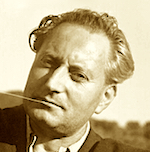
Jean Giono
1895 – 1970 CE
Jean Giono (1895 – 1970)
Son of a cobbler, one of France’s greatest writers, twice imprisoned pacifist, follower of Walt Whitman’s egalitarian pantheism, and grandfather to the modern ecological movement; Giono wrote numerous novels, short stories, articles, and poems. A master of metaphor, his masterpiece work The Man Who Planted Trees was rejected by Reader’s Digest for being too metaphoric. In response, Giorno refused any royalties, surrendered all his rights releasing it into the public domain, and gave free use to anyone who wanted to use it. Within 4 years it was translated into 12 languages and soon became a classic inspiration for everyone concerned with the environment and sustainability. An animated version won an Academy Award in 1988 and it’s considered one of the best animated films of all time.
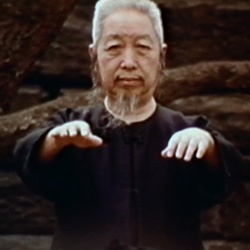
Cheng Man-ch'ing
1902 – 1975 CE
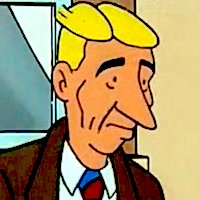
Hergé (Georges Prosper Remi )
1907 – 1983 CE
Intrepid reporter of world culture
Hergé translated world culture—from the past and future, from Native American, African, European, Mid-Eastern, South American, Chinese, and Tibetan—to a world only beginning to open its eyes to a new political and social consciousness just beginning to transcend nationalism. He created a visually engaging, highly entertaining, and wisdom transmitting art form that became one of the 20th century’s most popular publications. Although the early Tintin cartoons and books were used as propaganda by a conservative Catholic newspaper, steered away from political views during the German occupation of Belgium, and although Hergé himself was accused of racism and arrested four times; his positive impact on international consciousness steadily increased as more than 120 million Tintin books were sold and translated into 40+ languages. His travels introduced him to Asian thought which deeply influenced his message. He described his political views by quoting Chuang Tzu.
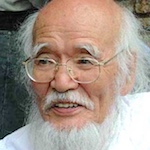
Masanobu Fukuoka 福岡 正信
1913 – 2008 CE
Farmer and philosopher, giant in the development of organic farming, sustainable development, guerrilla gardening and permaculture; Fukuoka founded “No-Till Natural Farming.” Trained as a microbiologist and agricultural scientist, he challenged Western agricultural practices both on his farms, in worldwide lectures, and in his books applying Taoist approaches like non-intervention and “Do-Nothing farming.” He worked with the UN to combat desertification, helped the Green Gulch Zen Center and Lundberg Family Farms, did projects in Africa, India, the Far East, Europe and South America. A deep observer of nature, he went beyond farming techniques to inspiring the natural food and natural lifestyle movements.

John Blofeld
1913 – 1987 CE
When very young, Blofeld came upon a statue of the Buddha and the experience changed his life redirecting it toward the East where he taught and traveled throughout Hong Kong, Tibet, Mongolia, China, India, and Burma. Many of these experiences were before the Cultural Revolution in China so offer a rare glimpse into that pre-Communist world. While studying and practicing with famous Chan and Vajrayana masters like Hsu Yun and Dudjom Rinpoche, he wrote 18+ books that have had a singular and deep influence bringing Eastern insights and practices to the West.
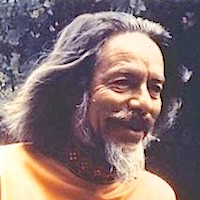
Alan Watts
1915 – 1973 CE
Episcopal priest become Buddhist, trickster, "philosophical entertainer,” counterculture hero, gifted speaker, and transducer to the West of Eastern philosophy; Watts wrote more than 25 books and in 1953 began a 9-year series of weekly radio broadcasts that continue being re-broadcast today. A friend and collaborator with Gary Snyder and Joseph Campbell, an inspiration for Robert Anton Wilson and Werner Erhard; Watts was criticized by teachers like Philip Kapleau, D. T. Suzuki, and Robert Baker Aitken but defended and described as a “great bodhisattva” by Shunryu Suzuki. Equating mystical experience with ecological awareness and Buddhism with psychotherapy, Watts became a bridge between culture and nature criticizing the modern view of “progress,” the idea of an absolute morality, and the ego-centricism preventing individual and international peace.
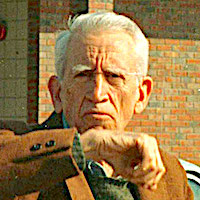
J. D. Salinger
1919 – 2010 CE
Something about the writings of J. D. Salinger captured the imagination of the 1950's and 60's and continues on today. He helped bring into Western culture more of an appreciation for authenticity, genuineness, and the idea of being true to oneself. His life intersected with and influenced many famous people of his time. He dated playwright Eugene O'Neill's daughter (who left him to marry Charlie Chaplin), socialized with actresses like Anne Bancroft and Audrey Hepburn, and studied with spiritual teachers like D. T. Suzuki. He became a serious Zen student, studied Lao Tzu, Sufi mysticism, yoga, and Vedanta. Authors who cite him as a major influence include Haruki Murakami, John Updike, Philip Roth, Louis Sachar, Tom Robbins, and many more. After a brief experience with fame, Salinger returned to his Lao Tzu-influenced roots of inscrutable privacy and anonymity.
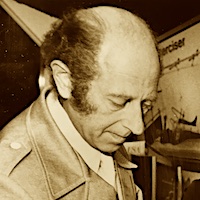
Ralph Alan Dale
1920 – 2006 CE
Translator, author, visionary
(1920-2006)
Conductor, composer, clinician, acupuncturist, researcher and prolific writer of over 70 books and videos; Dale translated the Tao Te Ching into verse and wrote a deeply thought-through chapter-by-chapter commentary applying Lao Tzu's wisdom to modern day challenges. In his profession, his writing, and in his life; he seems to both understand the deeper Tao Te Ching messages as well as develop insightful ways of incorporating this wisdom into solutions for modern political, cultural, and social challenges. While not minimizing modern confusions, he stays positive and optimistic, predicts new evolutionary cultural realizations, the actualization of Taoist visions of wholeness and harmony.
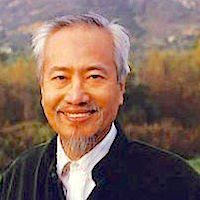
Hua-Ching Ni
1925 CE –
Heir to a 74-generation Taoist tradition and a 38-generation Chinese medical one, grandmaster, healer, author of 70+ books in English and 50 in Chinese; Hua-Ching Ni grew up in China studying with remote mountain Taoist masters and his family medical adepts. When Mao took over China in 1949, he left his family and by himself migrated to Taiwan where he taught Taoism and practiced medicine for 28 years. In 1976 at the request of students he moved to Los Angeles and began teaching in America where he founded a medical school, practiced medicine, and taught tai chi, qi gong, Taoist meditation, and internal alchemy.
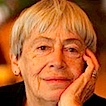
Ursula Le Guin
1929 – 2018 CE
At an early age, Le Guin saw her father making notes in an old book. In this way she discovered Lao Tzu who became a lifelong teacher and companion. Her father, a famous cultural anthropologist also exposed her to the native American shamanistic traditions. This led to a prolific and influential literary career with works translated into 31 languages and winning 21 Locus, 6 Nebula, 5 Hugo, a Newbery and World Fantasy, many “year's best” and other awards. Not just entertaining, these books challenged and positively shaped modern views on race, gender, society and the environment.
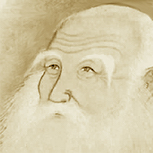
Shan Dao 山道
1933 CE –
Translator, entrepreneur, farmer, engineer, inventor, house-holder, and single father; Shan Dao grew up in a remote but culturally diverse village. Alienated from the materialism and militarism of his environment, he was drawn toward a spiritual path and at 4 years old began experiencing at first a mystical Christianity and later one more in harmony with Doestoevesky and Teilhard de Chardin. He practiced at first Rinzai and later Soto Zen, Tibetan Vajrayana Buddhism, and a Rimé Shambhala tradition which led to an immersion in the Tao Te Ching and the deep wisdom streams hidden but flowing in our many different religious cultures.
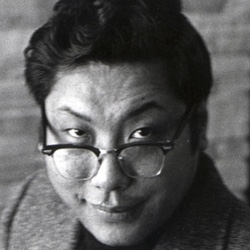
Chögyam Trungpa
1939 – 1987 CE
A once-in-a-generation kind of teacher, a mahasiddha for our times, a transducer transforming ancient wisdom into modern idiom. Per Allen Ginsberg, “A Renaissance man of the highest peaks of East, meditation emperor, space awareness Dance-master, witty rude calligrapher whose poetry and flower arrangements unite the Mind with Body… Prime Minister of Imagination… Chairman of the Board of Directors of Ordinary Mind.” Meditation master, scholar, teacher, poet, artist, he was honored as a mahasiddha by teachers like Khyentse Rinpoche and the 16th Karmapa. “The father of Tibetan Buddhism in the US,” his influence was and remains beyond words.

John Lennon
1940 – 1980 CE
Poet of our age, 20th Century social conscience, inscrutable, uncompromising, brave and outrageous; John Lennon personifies the Lao Tzu lineage and left a lasting and profound impact on the international evolution of consciousness. Uncompromising psychological prophet, he distilled and magnified both our dark side shadows and bright, golden age potentials. Reviled by the Nixon administration and investigated by the FBI, he’s now number 8 on the list of 100 Greatest Britons. Anthem writer for the counterculture and the anti-war movement, reviled by the Nixon administration and investigated by the FBI, he’s now number 8 on the list of 100 Greatest Britons.

Bob Dylan
1941 CE –
Though thought of in many different ways by different people, at heart, Bob Dylan may most essentially represent a modern-day Taoist sage, a continuation of Lao Tzu’s lineage. Awarded the Nobel Prize for Literature in 2016 and called the “Shakespeare of his generation,” he wrote over 500 songs recorded by more than 2000 singers and sold tens of millions of albums. Though world famous for decades and beyond “successful” in numerous ways, his humility and refusal to make a big deal out of himself remains. His music and message transcends his voice and culture. As relevant today as it was in the 60’s, it continues as a major influence on our cultural conscience and consciousness. And this influence shows all signs of continuing far into the future.
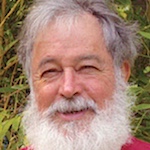
Red Pine ( Bill Porter)
1943 CE –
Exceptional translator, cultural diplomat
Son of a bank robber turned politician who became the wealthy head of the California democratic party, friends with the Kennedys and nominated for president by Eleanor Roosevelt but who later lost everything; Red Pine at an early age saw through the materialism of western culture and left the US for 22 years to study, practice, and translate in the Far East. After studying with John Wu, John Blofeld, and Chiang Kai-Shek’s personal master, Wu Ming, he traveled through Mainland China documenting his adventures with details about Chinese culture and history on over 1100 radio programs for Chinese audiences. His translations sink through the words, find the essence, and bubble the meaning up into beautiful and vivid English.
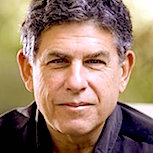
Stephen Mitchell
1943 CE –
Translator, poet, scholar; Mitchell was “educated” at the Sorbonne and Yale, “de-educated” with intensive Zen practice. He’s written fiction, non-fiction, poetry, children’s books and has translated more than 23 books including the Tao Te Ching, Gilgamesh, The Iliad and The Odyssey, the Bhagavad Gita, and the Poetry of Rainer Maria Rilke called “the most beautiful group of poetic translations the 20th century has produced.” Married to Byron Katie, founder of The Work, he coauthored two of her bestselling books: Loving What Is and A Thousand Names for Joy.
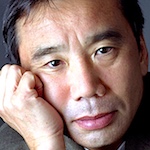
Haruki Murakami
1949 CE –
A “global” writer going beyond his time and culture to explore universal themes, Murakami takes his characters and readers into an inner dreamscape where they together look into the beyond thought world of imagery, perception, and consciousness. Grandson of a Buddhist priest and an Osaka merchant, he became both the most experimental and most popular Japanese novelist translated into English. Called a “voice of his generation,” his books create an allegorical world of magical realism and convey an understanding and appreciation for the vast sacredness of each moment.
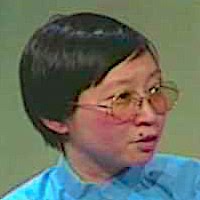
Eva Wong
(c. 1951- )
Champion of Qigong, Fengshui, and a Taoist approach to health and healing
Born in Hong Kong and growing up hiking and meditating in the mountains of the New Territories, Eva Wong connected with Taoism at an early age and became a translator and author of many books on Taoist arts, qigong, and fengshui. She began studying Tibetan Buddhism when only 7 years old and is the 19th generation lineage carrier of Xiantianwujimen Taoism (the Pre-celestial Limitless Gate School). She practices several Chinese Fengshui systems and consults on applying these principles for personal homes, commercial sites, and spiritual centers. In this tradition, she also specializes in qigong, divination, and the I Ching. Taking to heart the Taoist principles of simplicity, anonymity, and selflessness; she insists she is not a teacher, doesn’t publish pictures of herself, and doesn’t give out personal details like her birth date.
Related Sources (11 sources)
Chiao Hung and the restructuring of in the late Ming by Edward T Chʻien
Journey Without Goal by Chögyam Trungpa
The Way of Chuang Tzu by Thomas Merton
Our Oriental Heritage by Will Durant
Tao Te Ching 道德经 Dàodéjīng by Lao Tzu
Secret of the Golden Flower 太乙金華宗旨; Tàiyǐ Jīnhuá Zōngzhǐ by Lü Dongbin
Tao Te Ching, a new translation and commentary by Ralph Alan Dale
Inner Structure of the I Ching by Anagarika (Lama) Govinda
Road Back to Nature by Masanobu Fukuoka
Quotes about the Taoist Lineage (17 quotes)
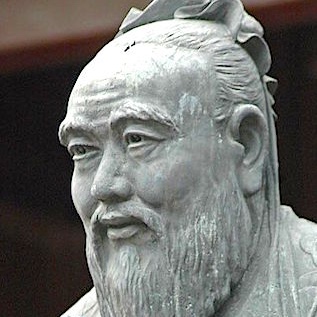
“I know how birds can fly, fishes swim, and animals run. But the runner may be snared, the swimmer hooked, and the flyer shot by the arrow. But there is the dragon—I cannot tell how he mounts on the wind through the clouds, and rises to heaven. Today I have seen Lao Tzu, and can compare him only to the dragon.”
Comments: Click to comment

“Taoists don’t avoid what others hate… They only avoid what others fight over, namely flattery and ostentation.”
Comments: Click to comment
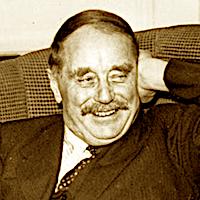
“After his death, Lao Tzu’s teachings were corrupted and overlaid by legends and had the most complex and extraordinary observances and superstitious ideas grafted upon them.”
Comments: Click to comment
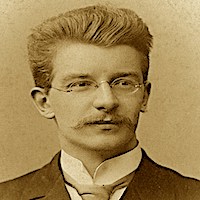
“Herein lies a difference between Buddhism and Taoism. In Buddhism, this return to Nirvana is connected with a complete annihilation of the ego, which, like the world, is only illusion. In Taoism, the goal is to preserve in a transfigured form, the idea of the person, the 'traces' left by experience. That is the Light symbolized in our text by the Golden Flower.”
Comments: Click to comment
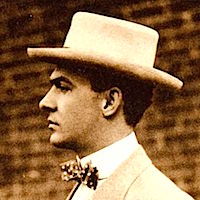
“[Taoism is] the straightest, most logical explanation as yet advanced for the continuance of life, the most logical use yet advised for enjoying it.”
Comments: Click to comment
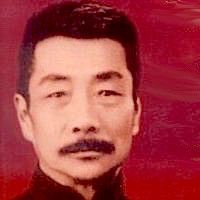
“People hate Buddhist monks and nuns, Mohammedans, and Christians. But no one hates a Taoist. To understand the reason for this is to understand half of China.”
Comments: Click to comment

“Popular theologians took the misty doctrine of Lao Tzu and gradually transformed it into a religion. People flocked to it, built temples, supported its priesthood and poured into the new faith their inexhaustible superstitious lore. Lao Tzu was made a god... For a thousand years the Taoist faith had millions of adherents, converted many emperors, and fought long battle of intrigue to wrest from the Confucians the divine right to tax and spend.”
Comments: Click to comment
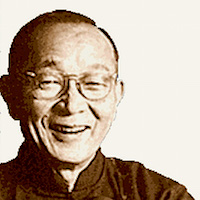
“Confucians worship culture and reason; Taoists reject them in favor of nature and intuition, and the one who rejects anything always seems to stand on a higher level and therefore always seems more attractive than the one who accepts it... Lao Tzu's aphorisms communicate an excitement which Confucian humdrum good sense cannot. Confucian philosophy is a philosophy of social order, and order is seldom exciting.”
Comments: Click to comment
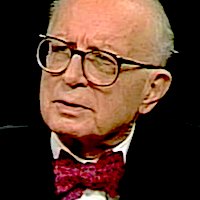
“An antidote—and a complement—to the rigid moralism of the later Confucians and their state religion, Taoism became both an elevated philosophy and a popular religion.”
Comments: Click to comment
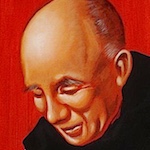
“There is no question that the kind of thought and culture represented by Chuang Tzu was what transformed highly speculative Indian Buddhism into the humorous, iconoclastic, and totally practical kind of Buddhism what was to flourish in China and in Japan in the various schools of Zen.”
Comments: Click to comment
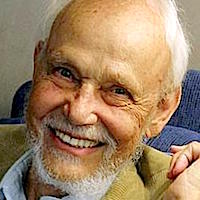
“In accounting terms, we can say that if Philosophical Taoists work at increasing net profits by cutting costs, Religious Taoists try it by increasing gross income.”
Comments: Click to comment
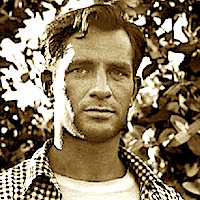
“Taoism is a human religion rather than divine like Buddhism. Tao can be 'used' (as by... cackling architects of the eternal nod)”
Comments: Click to comment
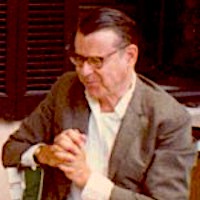
“Taoism cannot be traced back to Lao Tzu or any other single man. Its principal branches were not offshoots of the Taoist church. Those who set up the church were not followers of Lao Tzu (they turned their backs on almost every precept in his book). the doctrines of Taoism are no more 'corrupt' today than they were when it began. And to call it a religion at all is misleading because, though it included a religion, its other elements were equally important.”
Comments: Click to comment

“Lao Tzu is not saying that immortality or even longevity is desirable. The religion called Taoism has spent much imagination on ways to prolong life interminably or gain immortality… but the Lao Tzu who wrote this had no truck with such notions.”
Comments: Click to comment

“Intellectuals began debating... scholars wrote tomes... moralists determined what is on the Way and what if off... thus Taoism was born”
Comments: Click to comment
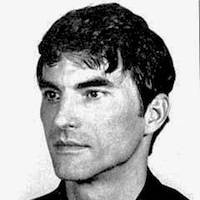
“In its pristine sense, the meaning of following the Tao, later called Taoism or wayfaring, included the whole spectrum of the search for knowledge... the schools of learning that retained the most comprehensive range of interest general came to be known as Taoist... [It] was used as a primary source for terms and concepts through which Buddhism could be explained to the Chinese.”
Comments: Click to comment
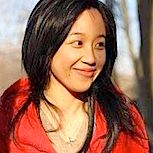
“Taoism is unique among the major schools of Chinese thought in emphasizing the priority of the feminine principle (yin) over the masculine principle (yang).”
Comments: Click to comment
Comments (0)